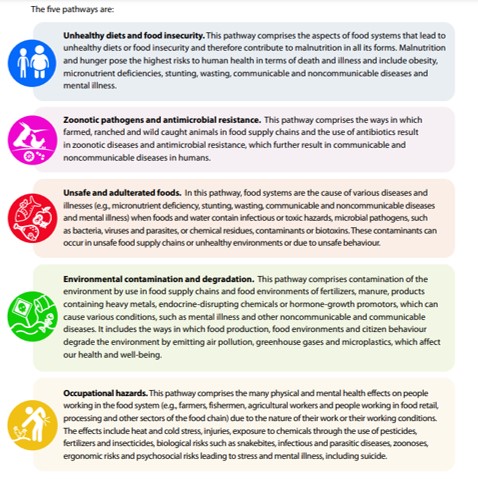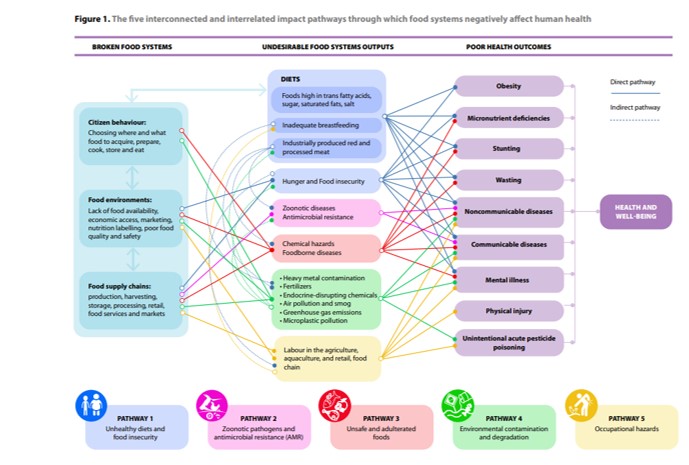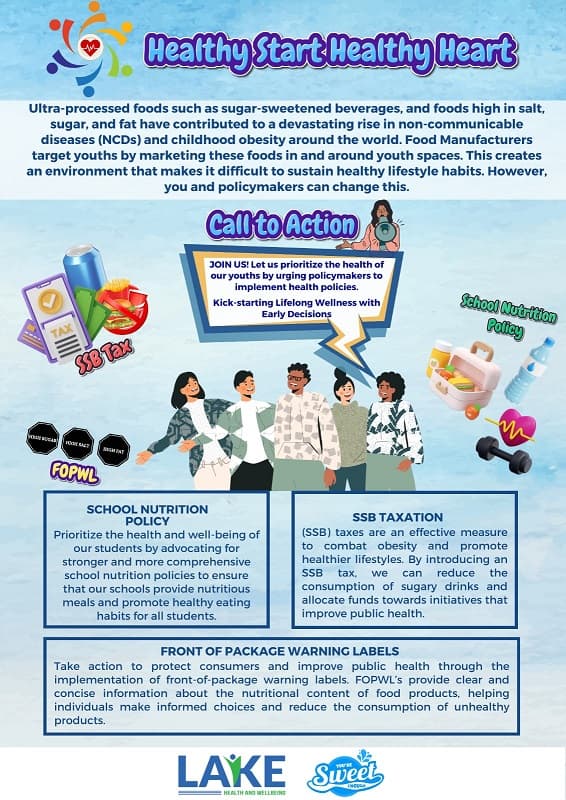You are sweet enough
WHO's Food Policy Recommendations
WHO Launches Six Food System Policy Briefs
On 21st September 2021, the World Health Organisation hosted a virtual pre-launch of its six policy briefs on the actions that are required in the global food system to deliver better health and nutrition for everyone. These briefs are part of WHO’s efforts to empower policymakers to develop effective interventions that improve the health of their nations and to tackle the growing rate of non-communicable diseases (NCDs). It is hoped that these resources, as well as a series of other resources which include guidance documents, implementation frameworks and tools to scale up action will support UN members in meeting global nutrition and NCD targets. Additionally, because of the connection between food systems and many global challenges like poverty, inequality, malnutrition and climate change, it is also hoped that these policy briefs will enable countries to achieve the Sustainable Development Goals by 2030.
During the virtual launch, WHO explained that their six new policy briefs focus on areas that are not new but are nevertheless important because they are known to be effective at promoting health, and the goal is to ensure that food systems are based on health, not profit and productivity.
It was also explained that the policy briefs are based on previous work conducted by WHO and its partners. Specifically, they build on a report on sustainable food systems which highlighted the five ways in which food systems can negatively affect the public’s health. These are depicted below and highlight the need for health to be at the centre of our global food system.


WHO's Policy Briefs
WHO’s new policy briefs cover:
- Public food procurement to facilitate the provision of more nutritious foods in Government settings so that public schools, hospitals and other Government-funded organisations have access to healthy meals
- Fiscal policy to shift the public’s behaviour towards healthy diets. These types of policies include taxes on unhealthy foods and drinks and subsidising healthy options
- Regulation of marketing of unhealthy foods and drinks to children to shift their preferences to healthy foods
- Nutrition labelling so that consumers can easily identify products that are high in sugar, salt and unhealthy fats and allow for informed purchases
- Food fortification to make foods more nutritious
- Food reformulation to reduce the salt, sugar and unhealthy fat content of food and beverages, and to eliminate trans-fat.
As explained in this event, policymakers can be confident in implementing the above-mentioned policies because these are long-standing approaches that have been proven to not only to be effective, but cost-effective and scalable. Additionally, they have been endorsed and monitored by WHO.
What Does This Mean for St Kitts and Nevis?
As St Kitts and Nevis looks to tackle its high rate of NCDs, the WHO policy briefs provide an evidence-based approach that our policymakers can easily adopt to create a healthy environment. As part of the Ministry of Health’s NCD Action Plan, several of the WHO’s six policy areas are already embedded into their strategy and all that is left is implementation.
Currently, we know that NCDs are the biggest health challenge that St Kitts and Nevis faces so urgent action is needed to reduce the prevalence of NCDs and our high rate of NCD-related death and disability.
We hope with this greenlight from the WHO through these new policy briefs, the Government of St Kitts and Nevis will be more likely to introduce these healthy food policies.
What Are We Doing?
On 17th September 2021, as part of our You’re Sweet Enough campaign, we joined local and regional civil society organisations (CSOs) to write to all members of the St Kitts and Nevis Parliament to call for the introduction of evidence-based food policies to tackle the consumption of sugar-sweetened beverages (SSBs).
Due to the very high level of sugar in SSBs, their regular consumption has been linked to weight gain and obesity, and being overweight or obese increases a person’s risk of developing non-communicable diseases (NCDs) such as type 2 diabetes, heart disease and some types of cancer.
Research has shown that 45% of adults and 26% of children in St Kitts and Nevis are obese, and this is contributing to the high rate of NCDs in the Federation. By reducing SSB consumption, we can reduce a major source of sugar in our diets, and this can lead to a reduction in NCD risk.
Specifically, our letter focused on three policy areas, all of which align with the WHO’s new policy briefs.
- A fiscal policy to reduce the consumption of sugar-sweetened beverages (an SSB tax)
- The introduction of front-of-package warning labels so that consumers can easily and quickly identify products that are high in sugar as well as salt and unhealthy fats
- The restriction of the sale and marketing of SSBs in and around schools
Through these actions, the Government can begin to address a major risk factor for NCDs and create a healthier environment. We look forward to the Government’s response and hope that action will be taken.
Share With :





